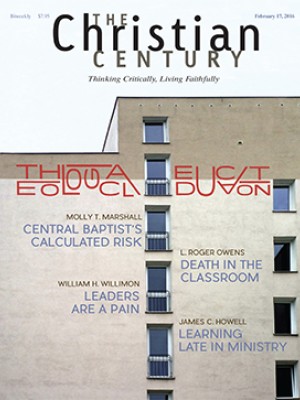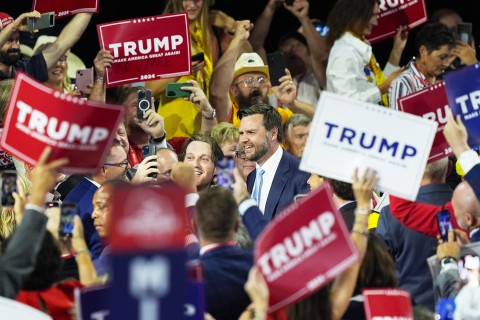Anglican leaders censure Episcopal Church
The Anglican Communion’s worldwide leaders, finishing up four days of heated discussions in mid-January, sought to project a sense of unity despite a move to exclude the Episcopal Church from key policy decisions as a result of the American province’s acceptance of same-sex marriage.
Archbishop of Canterbury Justin Welby, leader of the global body, stressed that the communion had chosen to remain together, albeit effectively as a house divided.
“The decision that we would walk together was unanimous,” Welby said, adding that any meeting of leaders of a communion of 85 million members in 165 countries and 38 provinces “is bound to give confused messages.”
The Anglican Communion is the world’s third-largest Christian tradition, after Catholics and Orthodox.
Welby downplayed the decision to suspend the Episcopal Church from decision making on policy and governance for a period of three years. He said it had been “completely taken out of context, and then very heavily interpreted” as a sanction on the American province.
Read our latest issue or browse back issues.
“We don’t have the power to sanction anyone,” he said. “We’ve said simply, that if any province on a major issue of how the church is run is out of line, there will be consequences in their full participation in the Anglican Communion.”
Welby said he wanted to “take this opportunity personally to say how sorry I am for the pain the church has caused” to people who have suffered because of their sexuality. But he stressed that the primary fear for the majority of Anglicans around the world “is the violence that confronts them and their families daily” amid armed conflicts and militant extremism.
Beside Welby as he spoke was Josiah Idowu-Fearon, the secretary general of the Anglican Communion, who said Western churches should stay out of African moral debates.
“If the West would just leave Africans within our various cultures, we know how to live together with our differences,” he said. Anglican churches in Africa have “always made room for pastoral care and concern for those who have a different sexual orientation.”
There were protests by LGBT Anglicans outside Canterbury Cathedral, where the primates met. Many were African, who sang songs of protests and chanted slogans calling for an end to homophobia.
Michael Curry, the Episcopal Church’s primate, released a video statement from Canterbury.
“This is not the outcome we had expected,” he said. “While we are disappointed, it’s important to remember that the Anglican Communion is really not a matter of structure and organization. The Anglican Communion is a network of relationships that have been built on mission partnerships.”
He emphasized that the Episcopal Church is still part of the Anglican Communion.
“It may be part of our vocation to help the communion and to help many others to grow in a direction where we can realize and live the love that God has for all of us, and we can one day be a church and a communion where all of God’s children are fully welcomed,” he said.
In July, the 1.8-million-member Episcopal Church voted to allow its clergy to perform same-sex marriages. An Anglican task force looked at how to respond, recommending that “given the seriousness of these matters we formally acknowledge this distance by requiring that for a period of three years the Episcopal Church no longer represent us on ecumenical and interfaith bodies, should not be appointed or elected to an internal standing committee and that while participating in the internal bodies of the Anglican Communion, they will not take part in decision making on any issues pertaining to doctrine or polity.”
The majority of Anglican primates at the January meetings voted to adopt the recommendations. At the same time, the primates’ statement “condemned homophobic prejudice and violence” and “reaffirmed their rejection of criminal sanctions against same-sex attracted people.”
The three-year term of the suspension is the amount of time until the next denomination-wide meeting of the Episcopal Church, when it will vote on a response, though other church groups could respond sooner.
Ian Douglas, Episcopal bishop of Connecticut, wondered whether the Anglican primates wanted the Episcopal Church to repent for its position on same-sex marriage. “Or were they asking for an apology for how the [church’s governing body] went about opening all the roles and rites of the church, including marriage, to lesbian, gay, bisexual, and transgender Episcopalians?”
Communion leaders also reportedly wanted to censure the Anglican Church of Canada, but because it has not yet adopted same-sex marriage rites, no action was taken.
Bishops who are part of the conservative group Global Anglican Future Conference have told Welby that they are not in communion with the Anglican Church of Canada or the Episcopal Church, said Stanley Ntagali, archbishop of Uganda.
“The Anglican Communion has, in fact, experienced a serious rupture and the wound is still deep,” he said.
Welby announced that the primates had agreed to hold the next Lambeth Conference in 2020. The last was held in 2008. —Religion News Service; added sources
This article was edited on February 2, 2016.






